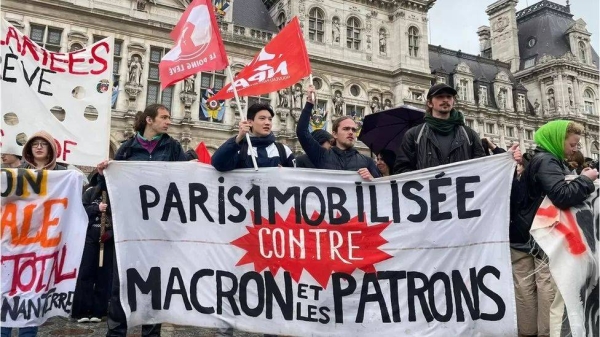
When Narendra Modi landed in Biarritz and went for dinner with the G7 heads of state, he enjoyed his third meeting with French President Emmanuel Macron in the space of three days. For, just a couple of days earlier, Modi had met Macron for an extensive bilateral meeting near Paris. The positivity in their relationship could be seen in Biarritz as well as in Chantilly, a chic town about 60 kilometers north of Paris, where Macron had hosted the Indian prime minister.
The late summer sun had already set when the two leaders emerged from their extended meeting in the historic halls of the Napoleonic chateau at Chantilly. That meeting was expected to be over in an hour, but had spilled over to beyond 90 minutes. And, when the two leaders emerged to address the press, the reasons became clear.
Macron made it clear, point by point, exactly how similar French and Indian views had come to be on a range of regional, international and global issues, and that the decades-old Indo-French partnership would continue to evolve into a relationship that could serve as a benchmark for other countries.
One of the most important strategic and regional issues on the table was the recent highly controversial decision by Modi to end the special dispensation accorded to the state of Jammu and Kashmir under the Indian Constitution. The decision led to strong protests by Pakistan and also many Indian opposition parties, which accused the government of playing with fire. Pakistan has been trying, unsuccessfully so far, to get Western nations and the UN Security Council involved. Thus, it was a key win for Modi when Macron said that the move — an entirely sovereign right of India — was crucial to combating terrorism and bringing stability to a region that has been fraught with tensions and terror for the past several decades. In focusing on terror and stability, Macron chose to ignore the complete lockdown and total blackout of communication and information in parts of the state since the Aug. 5 move.
India and France have also intensified their cooperation in various strategic fields, especially defense, marine and also space. The two sides have been cooperating in space exploration for many decades, with some early Indian satellites being launched from the French base in Guyana. The two countries have also jointly developed satellites for third countries. This cooperation has received a major boost with the two countries having decided to cooperate on India’s planned mission to Venus. France will also help train the astronauts for a manned mission that India is planning.
Another key area of significant bilateral cooperation, which is also important for the entire world, is climate change. At the COP21 climate change summit in Paris in 2015, India and France jointly led the effort for the meeting to end with an agreement, something that was achieved nearly two days after its scheduled finish. This cooperation has since been strengthened, especially in the face of the decision by the US to exit the Paris Agreement. In this context, France and India have been responsible for the successful growth of the International Solar Alliance, which now has 76 member states and aims to develop a platform for the global adoption of solar energy, especially in tropical countries, with financial and technological assistance being provided by international organizations. The two nations will continue to work together on climate change and global warming by cooperating in developing carbon-neutral and carbon-friendly solutions for cooling technology, notably to cut the emissions of hydrochlorofluorocarbons, or HCFCs, which are used as coolants in air conditioning and chilling and which have a warming index several times higher than carbon.
Macron made it clear, point by point, exactly how similar French and Indian views had come to be.
Ranvir S. Nayar
Defense is another area where the two countries have decided to intensify their cooperation, as France tries to position itself at the top of the field of global arms producers with the help of the large purchases India has to make for all three forces — air, land and sea. Macron is clearly trying to use his proximity and personal bond with Modi to ensure that France gets a significant chunk of all the defense purchases India will be making in the next few years.
The French will also be keen to export their EPR nuclear power technology to India, despite the huge setbacks it has received in France itself, where the first reactor is a decade behind schedule and more than three times over budget. Paris is keen to conclude an agreement with New Delhi to build the world’s largest nuclear power station and, with the current dispensation in place, a deal on this cannot be ruled out, even if it is not at all in India’s interests to pursue an untested, expensive and time-consuming power option when it has made rapid progress in renewable energy at a much lower cost.
On Monday, when Modi left France after making an appearance at the G7 summit on Macron’s special invitation, both he and the French president must have been very content. For France, an assurance of several large deals and a bigger share of the Indian economic pie, while India gets some of the most modern defense equipment as well as intensifying its already close ties with a key powerbroker in Europe and several other parts of the world.












